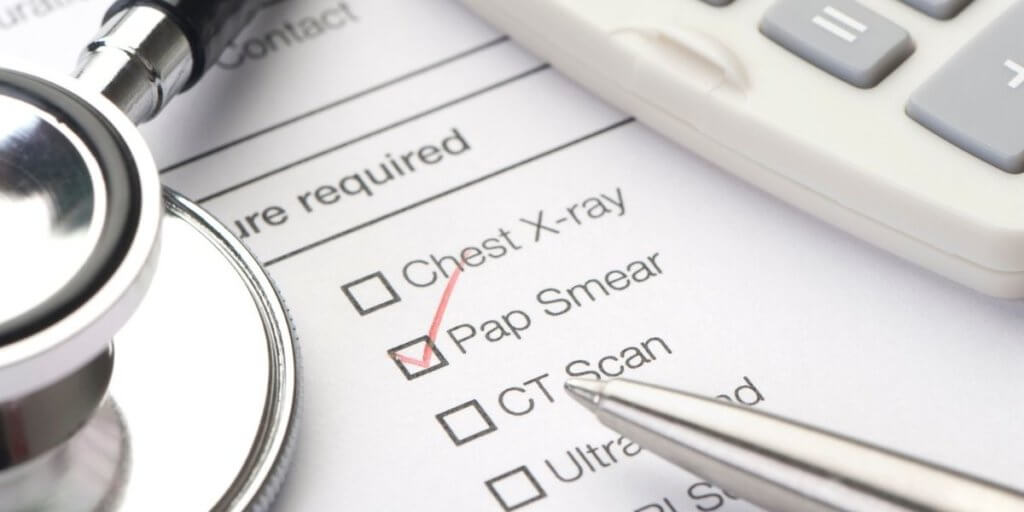
At the start of each new year, many women (and men) set resolutions around health and fitness. But one crucial habit all women can form revolves around regular health checks, particularly for preventable cancers. With January being Cervical Health Awareness Month, it serves as another reason to take charge of your health!
Cervical cancer used to be the leading cause of cancer death for women in the United States. BUT in the past 40 years, the number of cervical cancer cases and the number of cervical cancer deaths have decreased significantly! This large decline is due to many women getting regular Pap tests, which can find cervical precancer before it turns into cancer.
Can you recall your last visit to your OB/GYN? If not, this is the month to do it.
Each year, nearly 13,000 women are diagnosed with cervical cancer in the United States. Yet cervical cancer is one of the most preventable cancers today. Early detection is KEY. When you turn 21 years old, you should be screened with a Pap test. Then when you hit 30 years old, you should be co-tested with both a Pap test and an HPV test.
Things to Know About HPV & Cervical Cancer
HPV is common.
HPV is so common that most people get it at some time in their lives. HPV usually causes no symptoms, so you can’t tell that you have it. For most women, HPV will go away on its own; however, if it does not, there is a chance that it may cause cervical cancer over time.
Different Types
Types of HPV are referred to as either “non-oncogenic” or “oncogenic” based on whether they put a person at risk for cancer. Some types of HPV can cause genital warts (non-oncogenic). In contrast, some other types are linked to cervical cell changes that, if not detected early, can increase a woman’s risk for cervical cancer (oncogenic). HPV infections are usually harmless, though, and most are cleared naturally by the body in a year or two.
Vaccination
The HPV vaccine protects against the types of HPV that most often cause cervical, vaginal, and vulvar cancers. The CDC recommends all boys and girls get the HPV vaccine at age 11 or 12, but vaccination is available through age 26. The vaccine produces a more robust immune response when taken during the preteen years. For this reason, up until age 14, only two doses of the vaccine are required. Young women and men can get the vaccine up to age 26, but a full three-series is needed for those 15 and older. HPV vaccination prevents new HPV infections but does not treat existing infections or diseases. This is why the HPV vaccine works best when given before any exposure to HPV. You should get screened for cervical cancer regularly, even if you received an HPV vaccine.
Testing
Two screening tests can help prevent cervical cancer or find it early – the Pap test (or Pap smear) and the HPV test. The Pap test looks for precancers or any cell changes on the cervix that might become cervical cancer if they are not treated appropriately. The HPV test looks for the virus (human papillomavirus) that can cause these cell changes. Luckily, our doctor’s at CCP can perform both of these screening tests right in the office. A Pap/HPV co-test is recommended for women 30 and over.
Treatment
If your doctor says that you have cervical cancer, ask to be referred to a gynecologic oncologist—a doctor who has been trained to treat cancers of a woman’s reproductive system. This doctor will work with you to create a treatment plan.
There are several ways to treat Cervical cancer. It depends on the kind of cervical cancer and how far it has spread. Treatments include surgery where doctors remove cancer tissue in operation, chemotherapy where doctors use special medicines to shrink or kill cancer, and radiation therapy where doctors use high-energy rays to kill cancer.
Pregnancy
Pregnant women with HPV almost always have natural deliveries and healthy babies. It’s very rare for a newborn to get HPV from the mother.
Relationships
It can take weeks, months, and even years after exposure to HPV before symptoms develop or the virus is detected, which is why it is usually impossible to determine when or from whom you may have contracted HPV. Know that a recent diagnosis of HPV does not necessarily mean anyone has been unfaithful, even in a long-term relationship spanning years.
The Emotional Side
It can be upsetting when you are diagnosed with HPV, but remember that having HPV is normal! It doesn’t mean that you or anyone else did something wrong, just that, like most others, they were exposed to a common infection. To put things in perspective… there are 14 million new HPV infections in the U.S. each year alone!
Community Care Physicians is proud to offer several OB/GYN services around the Capital Region to help you in your cervical health. Click here to learn more about what we offer.
Source https://www.cdc.gov/cancer/cervical/index.htm National Cervical Cancer Coalition
